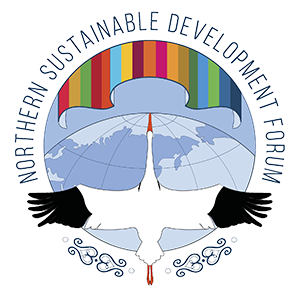Expert discussion "Prevention of natural disasters and emergencies"
The Arctic is a unique innovative "testing ground" for the Russian economy and its fuel and energy complex. However, it is also an extremely environmentally vulnerable region that requires a special way of conducting production and economic activities and organizing the life of the people.
In the Arctic zone, there are risks of natural, man-made, biological and social emergencies. Among them: landscape fires; equipment, residential and administrative building fires; transport accidents; accidents with release of toxic substances; radiation contamination and spills of petroleum products; buildings and structures collapse; accidents on pipelines, utility networks, life support systems and other emergencies that exacerbate difficult climatic and weather conditions.
Frost, fires, storms, avalanches, icebergs and other dangerous natural phenomena pose a serious threat to the residents of the Arctic and companies doing business in this area. On average, up to 100 natural emergencies occur in the Arctic region every year.
The consequences of climate change in Yakutia are noticeable like nowhere else in Russia: melting permafrost, "superheat of 2021," forest fires. All this requires increased forest protection, soil protection and permafrost protection, which, among other things, act as carbon sinks. According to UN climate studies, the Arctic is warming up twice as fast as the rest of the earth's surface due to global climate change. Such changes can lead to melting permafrost and disappearing glaciers. How to adapt to complex natural challenges and reduce the losses to a minimum?
In the focus of the discussion::
How does the imbalance of the climate system provoke dangerous natural phenomena?
Their modern classification and economic damage.
Are there ways to prevent natural hazards?
Systems of monitoring, control and modeling of natural hazards.
Forest-climatic projects.
Moderator:
Irina ALEXANDROVA, TASS Russian News Agency
Invited to participate::
Alexander FEDOROV, Deputy Director for Research, Melnikov Institute of Permafrost, Siberian Branch RAS
Alexei GORDIENKO, Acting Head, All-Russian Research Institute for Civil Defence and Emergencies, Ministry for Civil Defence, Emergencies and Elimination of Consequences of Natural Disasters of the Russian Federation
Andrei CHAIKA, Deputy Director, Department of Competition, Energy Efficiency and Ecology, Ministry of Economic Development of the Russian Federation
Vadim PETROV, Cochair, State Secretary, Ecological Chamber of Russia
Vitaly NEMTSOV, First Deputy Head, Chief Directorate of the Ministry for Civil Defence, Emergencies and Elimination of Consequences of Natural Disasters of the Russian Federation in the Sakha Republic (Yakutia)
Igor SHUMAKOV, Head, Federal Service for Hydrometeorology and Environmental Monitoring
Irina MAKANOVA, Director, Department of State Policy and Regulation in the Sphere of Designated Conservation Area Development, Ministry of Natural Resources and Ecology of the Russian Federation
Sakhamin AFANASIEV, Chair, Standing Committee for Land Affairs, Natural Resources, and Ecology, Il Tumen State Assembly of the Sakha Republic (Yakutia)
Video

